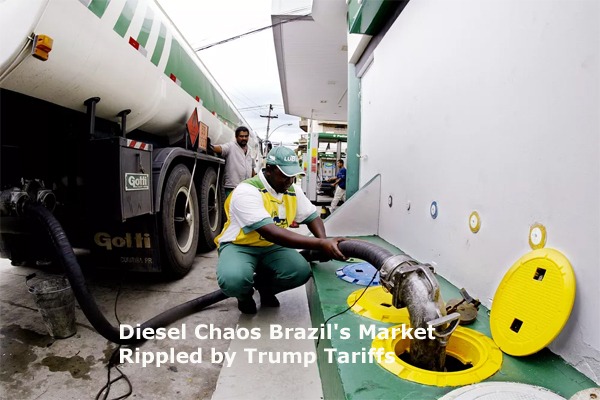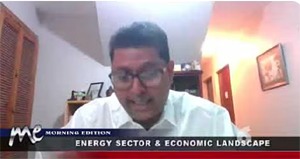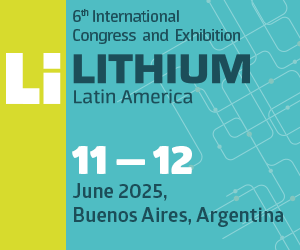Brazil’s diesel market eyes Trump and Petrobras

Marcos Mortari, Argus Media
SAO PAULO
EnergiesNet.com 04 10 2025
Tensions surrounding whiplash changes in trade policies favored by US president Donald Trump have created favorable conditions for foreign diesel imports into Brazil, just days after state-controlled Petrobras cut its refinery gate diesel prices.
On 1 April, Petrobras cut wholesale diesel prices by 4.6pc, bringing the average price to R3,550/m³ (226.86¢/USG) from around R3.720/m³ (237.73¢/USG). Foreign diesel prices had been trending lower than Petrobras’ prices for more than a month prior to the announcement.
The competitiveness of imported diesel led some retailers to delay the withdrawal of fuel contracted with Petrobras, even at the cost of paying penalties.
Petrobras’ price reduction made the company’s diesel more attractive on the domestic market, but the scenario was short-lived. Within about 24 hours, on 2 April, Trump unveiled so-called “reciprocal tariffs” on products imported from practically all US trading partners, triggering a strong global reaction, and setting the stage for a showdown with China.
Investors’ concern about recessionary risks clobbered prices for a wide range of commodities traded on the world’s stock exchanges. Nymex ultra-low sulfur diesel (ULSD) futures fell more than 10pc between 2-8 April, to a near four-year low.
The volatility of the international markets has caused a turnaround in diesel prices on the Brazilian market. The heightened uncertainty led some participants to adopt a more cautious stance, waiting for prices to settle before making firmer decisions.
“We are planning imports where we need to cover supply needs, without lengthening our position,” said one trader.
Between 2-8 April, the price indicator for ex-port land terminal diesel traded on the spot market at Santos, Paranagua, Suape and Itaqui ports fell in relation to Petrobras’ basis by R140/m³, R230/m³, R102.5/m³ and R160/m³, respectively. The move followed international volatility caused by trade conflicts, as imported diesel responds to nearly 20pc of all the Brazilian domestic supply.
The escalation of trade conflicts led to an interruption in talks between importers and suppliers last week, when both sides took the opportunity to assess the impact of developments on the fuel sector.
Around 1.6mn m³ of imported diesel is expected to land in Brazil in April, according to data from shipping agencies and energy analytics firm Vortexa. If realized, the volume would represent a 33pc increase over the same period of 2024. To traders, the surging volume of product available on the domestic market and the wide variation in daily prices between different locations could offer good trading opportunities for importers.
The Petrobras factor
Market participants are also monitoring Petrobras’ behavior in this new context. The price cut at the company’s refineries and the subsequent reopening of arbitrage for imports has reinforced the perception that further price cuts are on the company’s radar.
Deeper cuts would be welcomed by Brazil’s federal government, which is locked in a fight against creeping inflation. Rising prices are being blamed for the slipping popularity of President Luiz Inacio Lula da Silva.
Diesel has a small influence on the extended national consumer price index IPCA portfolio, at around 0.24pc, but the view is that the fossil fuel has a significant indirect impact on the formation of food prices, which account for 21.87pc of the index.
Despite favorable arbitrage for imported product in March, part of the market was surprised by Petrobras’ latest price cut. There is a perception among traders that the predictability of the company’s decisions has diminished.
The company’s management has indicated that it will not act while uncertainty in global markets persists.argusmedia.com 04 10 2025














